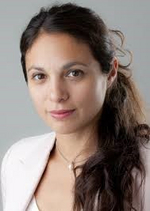University Medical Center (UMC) Mainz
Maria Felicia Basilicata Christian Behl Benedikt Berninger Luciana Berod Tobias Bopp Andreas Daiber Sven Danckwardt Carsten Deppermann Stephan Grabbe Thomas Hofmann Daniela Kramer Daniela Krause Dilja Krueger-Burg Michael Kühn Beat Lutz Johannes Mayer Wolfram Ruf Katrin Schäfer Susann Schweiger Natalia Soshnikova Tim Sparwasser Oliver Tüscher Sara Vieira-Silva Ari Waisman Philipp Wild Jennifer Winter Fatemeh Zare-ShahnehImmune cell metabolism & cell fate decisions

Our immune system works in an orchestrated manner to protect us against pathogens and foreign substances. Failure of this system leads to chronic infection, autoimmune diseases or cancer. In our group “Immunomodulation” at the Paul Klein Center for Immune intervention at the UMC, we investigate how immune cells can be influenced by changes in metabolism and how metabolic pathways can be targeted for therapeutic purposes. Additionally, we study how metabolism influences posttranslational modifications in immune cells and thus influences immune cell function. The focus of our work is the balance between regulatory T cells and inflammatory T cells and their activation by dendritic cells in different infection, cancer and autoimmune disease models. In this context, we have previously demonstrated that the development of Th17 cells depends on de novo fatty acid synthesis (FAS), and that this pathway has therapeutic potential in autoimmune diseases and GvHD. In addition, we showed that activation of the FAS pathway in T cells also has implications during infection, in which excessive protective immune responses can lead to unwanted tissue destruction. Recently, we published new studies on how fatty acid metabolism influences other immune cell subsets such as Tregs or dendritic cells.
Positions held
- Since 2020: W2 University Professor for Immunomodulation, Institute of Molecular Medicine, University Hospital, Johannes Gutenberg University Mainz
- 2014 - 2019: Group Leader, Institute of Infection Immunology, TWINCORE, Hannover Medical School, Germany
- 2010 - 2014: Postdoctoral Fellow, Institute of Infection Immunology, TWINCORE, Hannover Medical School, Germany
- 2004 - 2009: Institute of Immunology (Director: Prof. Dr Thomas Kamradt), Friedrich Schiller University, Jena, Germany
- 2001 - 2003: Reproductive Immunology Lab (Prof. Margni), Institute of Study of Humoral Immunity (IDEHU) CONICET-University of Buenos Aires, Argentina
Education
- 2004 - 2009: PhD (Dr. rer nat) in Immunology, Friedrich-Schiller University, Jena, Germany
- 1996 - 2002: Graduate studies in Biochemistry, University of Buenos Aires, Argentina
Selected publications by Luciana Berod
Raud B, Roy DG, Divakaruni, AS, Tarasenko TN, Franke R, Ma EH, Samborska B, Hsieh, WY, Wong AH, Stuve P, Arnold-Schrauf C, Guderian M, Lochner M, Rampertaap S, Romito K, Monsale J, Bronstrup M, Bensinge, SJ, Murphy AN, McGuire PJ, Jones RG, Sparwasser T and Berod L (2018) Etomoxir actions on regulatory and memory T cells are independent of Cpt1a-mediated fatty acid oxidation. Cell Metab, 28:504-515.e7 Link
Divakaruni AS, Hsieh WY, Minarrieta L, Duong TN, Kim KKO, Desousa BR, Andreyev AY, Bowman CE, Caradonna K, Dranka BP, Ferrick DA, Liesa M, Stiles L, Rogers GW, Braas D, Ciaraldi TP, Wolfgang MJ, Sparwasser T, Berod L, Bensinger SJ and Murphy AN (2018) Etomoxir inhibits macrophage polarization by disrupting CoA homeostasis. Cell Metab, 28:490-503.e7 Link
Stuve P, Minarrieta L, Erdmann H, Arnold-Schrauf,C, Swallow M, Guderian M, Krull F, Holscher A, Ghorbani P, Behrends J, Abraham WR, Holscher C, Sparwasser T and Berod L (2018) De novo fatty acid synthesis during mycobacterial infection is a prerequisite for the function of highly proliferative T cells, but not for dendritic cells or macrophages. Front Immunol, 9:495 Link
Raha S, Raud B, Oberdorfer L, Castro CN, Schreder A, Freitag J, Longerich T, Lochner M, Sparwasser T, Berod L, Koenecke C and Prinz I (2016) Disruption of de novo fatty acid synthesis via acetyl-CoA carboxylase 1 inhibition prevents acute graft-versus-host disease. Europ J Immunol, 46:2233-2238 Link
Berod L, Friedrich C, Nandan A, Freitag J, Hagemann S, Harmrolfs K, Sandouk A, Hesse C, Castro CN, Bahre H, Tschirner SK, Gorinski N, Gohmert M, Mayer CT, Huehn J, Ponimaskin E, Abraham WR, Muller, R, Lochner M and Sparwasser T (2014) De novo fatty acid synthesis controls the fate between regulatory T and T helper 17 cells. Nat Med, 20:1327-1333 Link